 CAT 125 CAT 125I/EYEgasm  Mutations of the Broadcasted Self in the Chaotic Digital Age of Sex and Race email: nericcio@cornell.edu Phone: 619.594.1524
Office Hours: Mondays &
Wednesdays,
Before class at The Loft, 10:45am to 12:40pm I/EYEGASM Home | I/EYEGASM Diary | I/EYEGASM Facebook | I/Eyegasm Telegrams | I/EYEGASM Tumblr 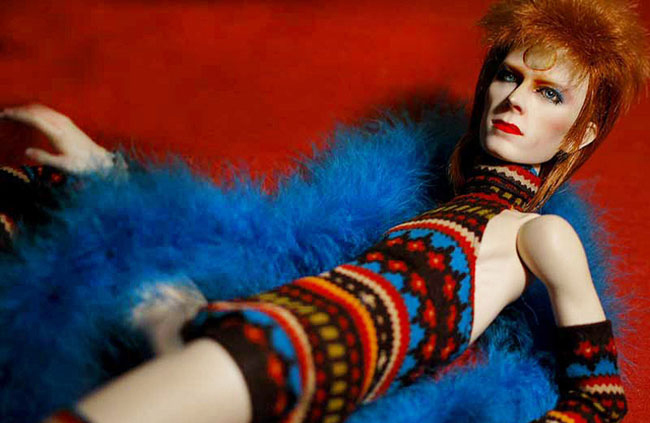 “I couldn't decide whether I was writing the
characters, or whether the characters were writing me, or whether we were all
one and the same.” “I couldn't decide whether I was writing the
characters, or whether the characters were writing me, or whether we were all
one and the same.”--David Bowie, musing on the last night he performed as Ziggy Stardust with the Spiders from Mars 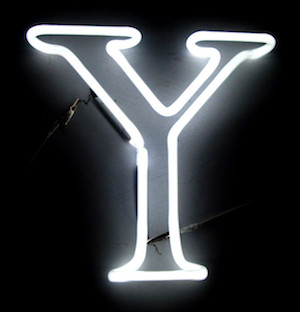 our UCSD course catalogue
refers to this class as “Public Rhetoric and Practical
Communication” and, indeed, we will, in the course of the Fall quarter, explore
the spheres of rhetoric, communication, and—brace for it—the joys
of “writing a resume.” But we will also be embarked on other, related perhaps
more profound missions! our UCSD course catalogue
refers to this class as “Public Rhetoric and Practical
Communication” and, indeed, we will, in the course of the Fall quarter, explore
the spheres of rhetoric, communication, and—brace for it—the joys
of “writing a resume.” But we will also be embarked on other, related perhaps
more profound missions! Together, we will explore the following questions: What is “self” and what goes into its manufacture? In order to answer those questions (and to keep our adventure timely and of value for undergraduates from across the disciplines) we will be grappling with contemporary debates that impact on our construction and “branding” of our self in worlds analog and digital.  Other
questions we will work with this semester include: What is a memoir? What is a
self-portrait? Why does it feel so good to have our pictures liked by unseen entities, the digitized
shadows of others, connected to us by the bizarre electronic network that is
the internet? What is the relationship of our Facebook page to our Self? Are living through a paradigm shift?—a watershed epoch where something as basic as the
“I” is totally being rewritten by our obsession with digitized eyes! Other
questions we will work with this semester include: What is a memoir? What is a
self-portrait? Why does it feel so good to have our pictures liked by unseen entities, the digitized
shadows of others, connected to us by the bizarre electronic network that is
the internet? What is the relationship of our Facebook page to our Self? Are living through a paradigm shift?—a watershed epoch where something as basic as the
“I” is totally being rewritten by our obsession with digitized eyes! In our class I will speak of hygiene’s cousin, “Eyegiene,” and of something I call “I/EYEgasm”—where the addictive hedonizing pleasure of the visually digitized world evolves into the virtual equivalent of crystal meth. I/EYEgasm is a made-up word, a neologism, that attempts to speak to our common experiences with mass media today—is it possible that the mesh of our minds with technology, our daily ritural of touching/seeing screens (computer screens, smartphone screens, television screens) comes to infect/dominate our lives? Eyes wide open, so to speak, these screens become electric, naked mirrors, concealing nothing, revealing all. The various works we encounter this term will teach us to rethink, rewrite, and reimagine what it is we call to consciousness when we picture the contours of the human mind--in the process, we will learn to tell stories of our selves, share representations of ourselves that just might move someone else (and get you a job, career, future!). During the semester we will hang out with a wide-ranging and eclectic group of characters including Banksy, the epic #streetart maven cum moviemaker with Exit Through the Gift Shop; Frida Kahlo, who basically rewrites the notion of the self-portrait in oil painting and beyond; Nathanael West, American novelist and arch satirist cynic whose Miss Lonelyhearts will singe your existential synapses; and Dan Clowes, infamous graphic narrative guru whose Ghost World redefines notions of being for a 21st century audience—also making cameos? Marshall McLuhan, Siggy Freud, John Berger, and LA Playwright Oliver Mayer. {Please note that you must have the old school PRINT version of the books for our class as electronic versions are to be avoided.} Sections/Teaching Assistants
Required Books: 1. The Medium is the Massage 9th Edition by Marshall McLuhan (Author), Quentin Fiore (Author), Shepard Fairey (Illustrator) Publisher: Gingko Press; 9th edition (August 1, 2001) ISBN-10: 1584230703 ISBN-13: 978-1584230700 2. Freud for Beginners Paperback –by Richard Appignanesi (Author), Oscar Zarate Publisher: Pantheon (July 15, 2003) ISBN-10: 037571460X ISBN-13: 978-0375714603 3. Ways of Seeing: Based on the BBC Television Series Paperback – by John Berger (Author) Publisher: Penguin Books; Reprint edition (December 1, 1990) ISBN-10: 0140135154 ISBN-13: 978-0140135152 4. Kahlo–by Andrea Kettenmann (Author) Publisher: Taschen (September 1, 2015) ISBN-10: 383650085X ISBN-13: 978-3836500852 5. Ghost World– by Daniel Clowes (Author) Publisher: Fantagraphics (April 1, 2001) ISBN-10: 1560974273 ISBN-13: 978-1560974277 6. Miss Lonelyhearts Paperback –by Nathanael West (Author), Harold Bloom (Introduction) Publisher: New Directions; Reprint edition (July 17, 2013) ISBN-10: 0811220931 ISBN-13: 978-0811220934 The Hurt Business: Oliver Mayer's Early Works [+] PLUS Paperback – by Oliver Mayer, William Nericcio, Editor Publisher: Hyperbole Books, San Diego State University Press; 1st edition ISBN-10: 1879691841 ISBN-13: 978-1879691841  | ||||||||||||||||||||||||||||||||||||||||||||||||||||||||||||||||||||||||||||||||||||||||
 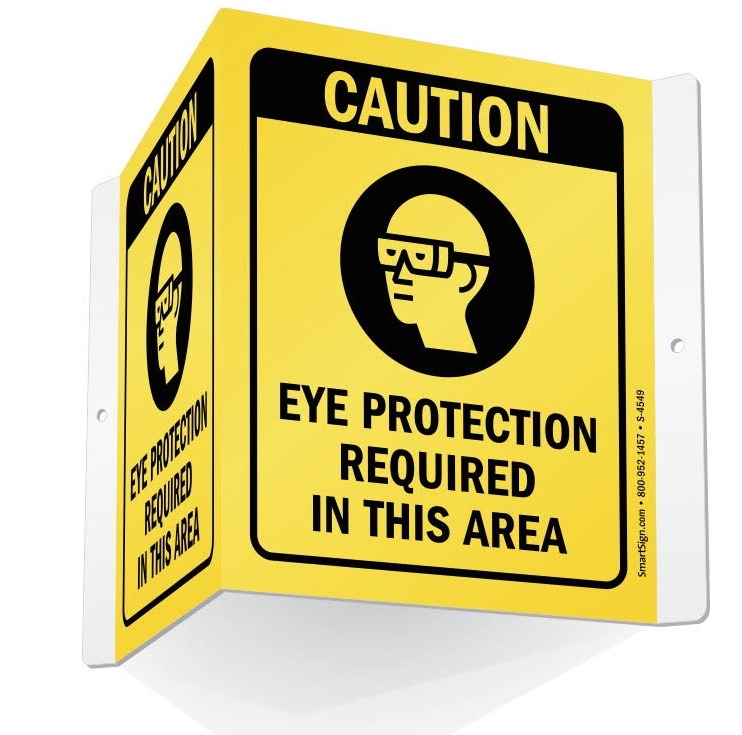  Course Requirements Course Requirementst  The wily wizards (actually, pointy-headed intellectuals) who came up with this CAT 125 class called "Public Rhetoric and Personal Communication" wanted you to come out of the experience of this class better able to share wildly different versions of yourself and to do so in multiple media. So it is that you will be tasked with inventing/producing/conjuring/whipping-up three versions of a shareable you:  1. A written "you" 1. A written "you"2. A web-based "you" 3. A performance of "you" To evaluate your performance we have come up with the following breakdown: Mimicking McLuhan / Copying Berger 10% See your i/eyegasm day diary, Wednesday, October 5, 2016, for the complete description of this assignment. This one assignment will NOT use the turnitin.com portal. Bring a hard copy to class October 5, 2016 Picturing Autobiography 15% A series of photographs that dramatize a decisive moment from your life OR that dramatize/adapt scenes from books we read or videos we screen in class. Details to follow via tinyletter.com telegram Self Historiography 15% A personal narrative, chronicling a watershed moment from your lived history that you create and tell as a video OR a video adaptation of a scene/idea from the works we read in the class. Details to follow via tinyletter.com telegram Ignite-Style* Speech/Oral Presentation: 20% A 5 minute speech with 20 automatically timed slides delivered Ignite-style.* For more on the particulars of Ignite-style presentations go here and here: http://www.ignitetalks.io and here: http://en.wikipedia.org/wiki/Ignite_(event) Details to follow via tinyletter.com telegram Website Portfolio Assignment: 20% Likely this will take the form of an online portfolio/journal, website, online reference work, or blog with video, audio, photography or some kind of digital storytelling component. Your writing and filming in this section can be focused on what you view to be the future contours of your career and/or reaction pieces to the works we will study during the semester. What is NOT important? The form of the responses: they can be written, filmed, etc. What IS important: that you produce materials that have value for you and for others. Details to follow via tinyletter.com telegram Attendance and Participation: 20% Show up to the class in the big room and to your weekly sections with our talented crew of graduate student TAs and everything will go smoothly and smiles will be shone by all. Miss more than three "episodes" of either the big class or your section and your grade will begin to drop precipitously. We may take attendance or not on a daily basis and surprise quizzes based on your readings for a given day are to be anticipated. Note both lecture and section attendance are mandatory. Any absences must be cleared with the instructor or TA in advance, or justified with written documentation (e.g. letter from student health, etc.). Absences may affect your overall course grade. More than 3 absences may be grounds for failure in the course. Attendance may be taken in lecture or you may be given a brief assignment as part of class participation.
Office Hours 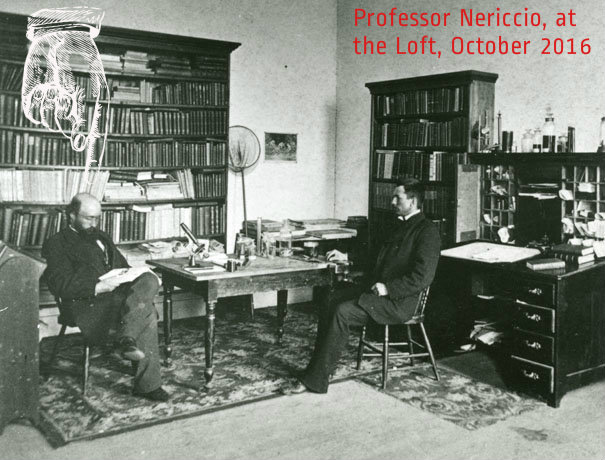 The cool folks at Sixth College have opted to not provide me with office space--god love 'em. However, that does not mean I am not available to thee! My office hours will be in The Loft from around 10:45ish to 12:40 or so, Mondays and Wednesdays, when I start walking over to our bunkered classroom. I am also available via appointment after class for a few minutes as well--just write me at nericcio@cornell.edu. | ||||||||||||||||||||||||||||||||||||||||||||||||||||||||||||||||||||||||||||||||||||||||
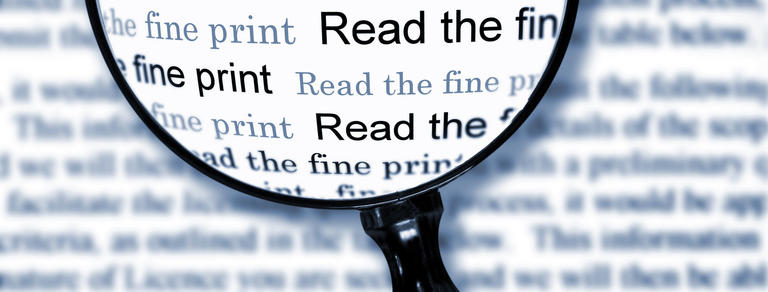 THE FINE PRINT--if you have to read below it's because you probably didn't come to class, didn't read our endless emails, or don't have a clue. Please read carefully before you come to me or your TAs with an issue. The following outlines your rights and responsibilities according to the gods of Sixth College, UCSD: POLICIES: 1. ASSIGNMENT SUBMISSION 2. ATTENDANCE 3. CLASS PARTICIPATION 4. CAT GRADING CRITERIA – PARTICIPATION 5. ACADEMIC INTEGRITY 6. UCSD’S PRINCIPLES OF COMMUNITY 7. ACCOMODATIONS FOR STUDENTS WITH DISABILITIES ---------------------------------------------------------------------------------------------------------------------- 1. ASSIGNMENT SUBMISSION A. Due Dates An assignment may receive an F if a student does not participate in every phase of the development of the project and meet all deadlines for preliminary materials (proposals, drafts, etc). Failure to submit any of the graded course assignments is grounds for failure in the course. If a final draft, plus required addenda, is not submitted in class on the date due, it will be considered late and will lose one letter grade for each day or part of a day past due (A to B, etc.). Assignments are due in hard copy as well as via turnitin. You must submit your assignments directly to your TA; you will not be able to leave papers for your TA at the Sixth College Offices. Any late submissions must be approved by your TA and/or faculty instructor well in advance of the due date. B. Turnitin Final drafts must be submitted to Turnitin via TED BY MIDNIGHT on the day it is submitted in class. A grade will not be assigned to an assignment until it is submitted to Turnitin via TED. Failure to submit an assignment to Turnintn via TED is grounds for failure of the assignment. 2. ATTENDANCE On-time attendance in lecture and section is required. Please notify your TA if you must be absent for illness or family emergency. Excessive absence (more than six class sessions, either lectures or sections) may be grounds for failing the course. Excessive tardiness will also impact your grade and may be grounds for failure. 3. CLASS PARTICIPATION Contributions to class discussions and active participation in small group work are essential to both the momentum of the course and the development of your ideas. This requires that you come to class prepared (having completed assigned reading and writing) and ready to participate in class activities. While you may use your digital devices during class, they must only be used for clear educational purposes. If your use of digital devices becomes distracting or disruptive you will be asked to leave class (lecture and/or discussion) and will lose participation points for that day. See the participation evaluation rubric below for more information. 4. CAT GRADING CRITERIA – PARTICIPATION Here is a description of the kind of participation in the course that would earn you an A, B, C, etc. Your TA may use pluses and minuses to reflect your participation more fairly, but this is a general description for each letter grade. A – Excellent
Excellent participation is marked by near-perfect attendance and rigorous preparation for discussion in lecture and section. You respond to questions and activities with enthusiasm and insight and you listen and respond thoughtfully to your peers. You submit rough drafts on time, and these drafts demonstrate a thorough engagement with the assignment. You respond creatively to the feedback you receive (from both your peers and TA) on drafts, making significant changes to your writing between the first and final drafts that demonstrate ownership of your own writing process. Finally, you are an active contributor to the peer-review and collaborative writing processes. B – Good Good participation is marked by near-perfect attendance and thorough preparation for discussion in lecture and section. You respond to questions with specificity and make active contributions to creating a safe space for the exchange of ideas. You submit rough drafts on time, and these drafts demonstrate thorough engagement with the assignment. You respond effectively to the feedback you receive (from both your peers and TA) on drafts, making changes to your writing between the first and final drafts. You are a regular and reliable contributor to the peer- review and collaborative writing processes. C – Satisfactory Satisfactory participation is marked by regular attendance and preparation for discussion in lecture and section. You respond to questions when prompted and participate in classroom activities, though you may sometimes be distracted. You are present in lecture and section, with few absences, and have done some of the reading some of the time. You submit rough drafts on time and make some efforts toward revision between the first and final drafts of an assignment. You are involved in peer-review activities, but you offer minimal feedback and you may not always contribute fully to the collaborative writing process. D – Unsatisfactory Unsatisfactory participation is marked by multiple absences from section and a consistent lack of preparation. You may regularly be distracted by materials/technology not directly related to class. You submit late or incomplete drafts and revise minimally or only at a surface level between drafts. You are absent for peer-review activities, offer unproductive feedback, or do not work cooperatively in collaborative environments. F—Failing Failing participation is marked by excessive absences, a habitual lack of preparation, and failure to engage in the drafting, revision, and collaborative writing processes. 5. ACADEMIC INTEGRITY UCSD has a university-wide Policy on Integrity of Scholarship, published annually in the General Catalog, and online. All students must read and be familiar with this Policy. All suspected violations of academic integrity will be reported to UCSD's Academic Integrity Coordinator. Students found to have violated UCSD's standards for academic integrity may receive both administrative and academic sanctions. Administrative sanctions may extend up to and include suspension or dismissal, and academic sanctions may include failure of the assignment or failure of the course. Specific examples of prohibited violations of academic integrity include, but are not limited to, the following: Academic stealing refers to the theft of exams or exam answers, of papers or take-home exams composed by others, and of research notes, computer files, or data collected by others. Academic cheating, collusion, and fraud refer to having others do your schoolwork or allowing them to present your work as their own; using unauthorized materials during exams; inventing data or bibliography to support a paper, project, or exam; purchasing tests, answers, or papers from any source whatsoever; submitting (nearly) identical papers to two classes. Misrepresenting personal or family emergencies or health problems in order to extend deadlines and alter due dates or requirements is another form of academic fraud. Claiming you have been ill when you were not, claiming that a family member has been ill or has died when that is untrue are some examples of unacceptable ways of trying to gain more time than your fellow students have been allowed in which to complete assigned work. Plagiarism refers to the use of another’s work without full acknowledgment, whether by suppressing the reference, neglecting to identify direct quotations, paraphrasing closely or at length without citing sources, spuriously identifying quotations or data, or cutting and pasting the work of several (usually unidentified) authors into a single undifferentiated whole. Receipt of this syllabus constitutes an acknowledgment that you are responsible for understanding and acting in accordance with UCSD guidelines on academic integrity. 6. UCSD’s PRINCIPLES OF COMMUNITY The CAT program affirms UCSD’s Principles of Community, and expects all students to understand and uphold these principles, both in their daily interactions and in their spoken, written and creative work produced for CAT classes: The University of California, San Diego is dedicated to learning, teaching, and serving society through education, research, and public service. Our international reputation for excellence is due in large part to the cooperative and entrepreneurial nature of the UCSD community. UCSD faculty, staff, and students are encouraged to be creative and are rewarded for individual as well as collaborative achievements. To foster the best possible working and learning environment, UCSD strives to maintain a climate of fairness, cooperation, and professionalism. These principles of community are vital to the success of the University and the well being of its constituents. UCSD faculty, staff, and students are expected to practice these basic principles as individuals and in groups. • We value each member of the UCSD community for
his or her individual and unique talents, and applaud all efforts to enhance
the quality of campus life. We recognize that each individual's effort is vital
to achieving the goals of the University.
• We
affirm each individual's right to dignity and strive to maintain a climate of
justice marked by mutual respect for each other.
• We value the cultural diversity of UCSD because it enriches our lives and the University. We celebrate this diversity and support respect for all cultures, by both individuals and the University as a whole. • We are a university that adapts responsibly to cultural differences among the faculty, staff, students, and community. • We acknowledge that our society carries historical and divisive biases based on race, ethnicity, sex, gender identity, age, disability, sexual orientation, religion, and political beliefs. Therefore, we seek to foster understanding and tolerance among individuals and groups, and we promote awareness through education and constructive strategies for resolving conflict. • We reject acts of discrimination based on race, ethnicity, sex, gender identity, age, disability, sexual orientation, religion, and political beliefs, and, we will confront and appropriately respond to such acts. • We affirm the right to freedom of expression at UCSD. We promote open expression of our individuality and our diversity within the bounds of courtesy, sensitivity, confidentiality, and respect. • We are committed to the highest standards of civility and decency toward all. We are committed to promoting and supporting a community where all people can work and learn together in an atmosphere free of abusive or demeaning treatment. • We are committed to the enforcement of policies that promote the fulfillment of these principles. • We represent diverse races, creeds, cultures, and social affiliations coming together for the good of the University and those communities we serve. By working together as members of the UCSD community, we can enhance the excellence of our institution. Receipt of this syllabus constitutes an acknowledgment that you are responsible for understanding and acting in accordance with UCSD guidelines on academic integrity. 7. ACCOMODATIONS FOR STUDENTS WITH DISABILITIES Students requesting accommodations for this course due to a disability must provide a current Authorization for Accommodation (AFA) letter issued by the Office for Students with Disabilities (OSD) which is located in University Center 202 behind Center Hall. Students are required to present their AFA letters to Faculty (please make arrangements to contact me privately) and to the OSD Liaison in the department in advance so that accommodations may be arranged. Contact the OSD for further information: 858.534.4382 (phone) | ||||||||||||||||||||||||||||||||||||||||||||||||||||||||||||||||||||||||||||||||||||||||